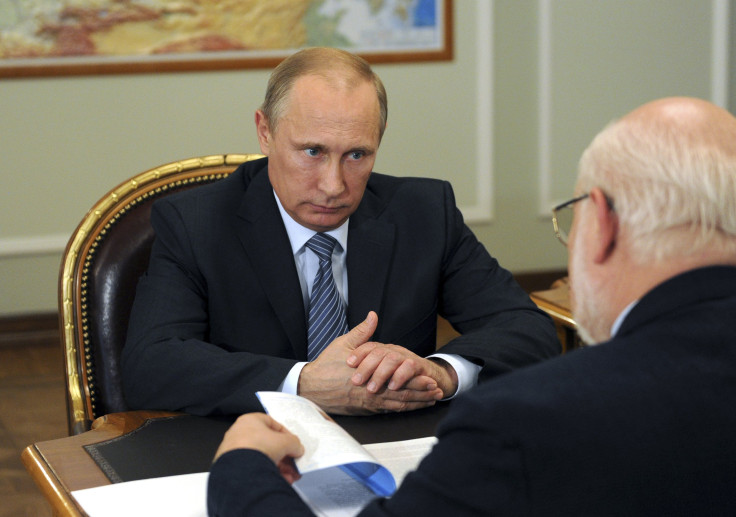Russia Puts The Squeeze On Europe As Focus Turns To ECB

(Reuters) - The first Russian riposte in a sanctions tussle with the West over Ukraine kept European shares and the euro under pressure on Thursday, as markets waited to hear how the European Central Bank would respond to the crisis.
Stocks in the region were on edge as a week-long slide, which has also seen nervy investors drive yields on safe-haven German government debt to all-time lows, continued.
Russia said on Wednesday it would ban all food imports from the United States and all fruit and vegetables from Europe, in a sweeping response to Western sanctions for Moscow's support for separatists in Ukraine.
As fighting has intensified on the ground in eastern Ukraine, NATO said Moscow had massed around 20,000 combat-ready troops on the Ukrainian border and warned of a possible advance.
Russian shares, which have lost almost 20 percent in the last three weeks, took another 0.4 percent hit in early trading, followed by Europe's main bourses in London, Frankfurt and Paris, which started 0.4-0.6 percent in the red before recovering. [.EU]
"The magnitude of the impact of the sanctions is hard to judge because we don't know how long they will be in place or whether there are ways that companies can get around them," said Kerry Craig, a global markets strategist at J.P. Morgan.
"I think investors are also looking at the general loss of momentum in the (European) economy we have seen in the last couple of months, looking at the world around them and adjusting their portfolios accordingly."
As German Bund yields hit their latest record low of the week and gold jumped back above 1,300 an ounce, the focus turned to what should normally be the European Central Bank's least eventful meeting of the year.
The Bank is certain to keep its interest rates at all-time lows but markets will be keen to see what impact it thinks the tensions with Russia will have on an already fragile euro zone economy.
The tensions have aided the ECB's efforts to push down the euro. The shared currency was hovering just above a nine-month and six-month low against the dollar and the yen in early European trading.
RECORD LOW YIELDS
Investors also sold Asian stocks overnight and flocked to safe-haven assets such as bonds and gold.
Oil saw no such traction despite Russia's production power. U.S. crude futures steadied at around $97.09 having slipped to a six-month low of $96.69 per barrel on Wednesday while Brent was barely changed at $104.62.
Sentiment soured further in Asia after the Australian dollar, seen as a barometer of risk appetite, sank after Australia's unemployment rate jumped unexpectedly to a 12-year high, sparking talk of an interest rate cut there.
MSCI's broadest index of Asia-Pacific shares outside Japan dropped 0.3 percent but Japan's Nikkei average turned positive following a Reuters report that the public pension fund will increase allocations to stocks.
As the nervy global mood hit confidence, 10-year U.S. bonds saw yields hit a two-month low of 2.433 percent US10YT=RR and last stood at 2.462 percent.
In Europe, German 10-year bund yield slid to a record low of 1.086 percent while the 10-year UK gilts yield hit a one-year low of 2.503 percent.
The Bank of England, which many investors believe will be the first of the world's major central banks to raise interest rates, is also due to give a policy update.
Its two-day meeting, which wraps up on Thursday, is likely to have produced the first split over rates in more than three years, with at least one member of the Monetary Policy Committee voting for higher borrowing costs, according to a Reuters poll.
"We've opened with a risk-off tone, mainly a reaction to what's going on with Ukraine and Russia. People are focusing on the economic impact of the retaliatory sanctions," said Lyn Graham-Taylor, rate strategist at Rabobank.
© Copyright IBTimes 2025. All rights reserved.




















